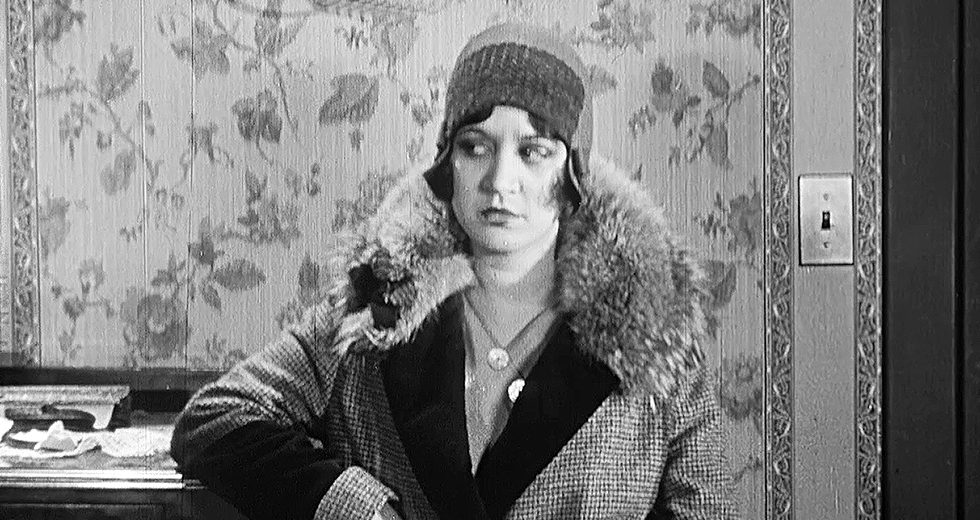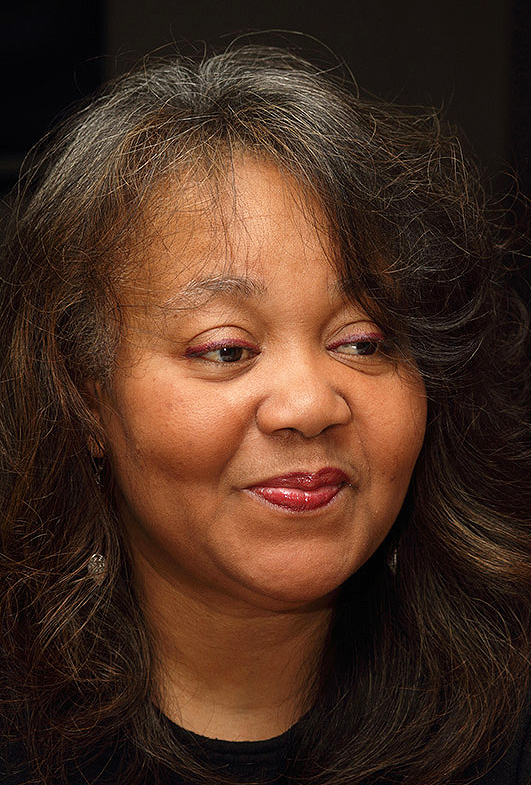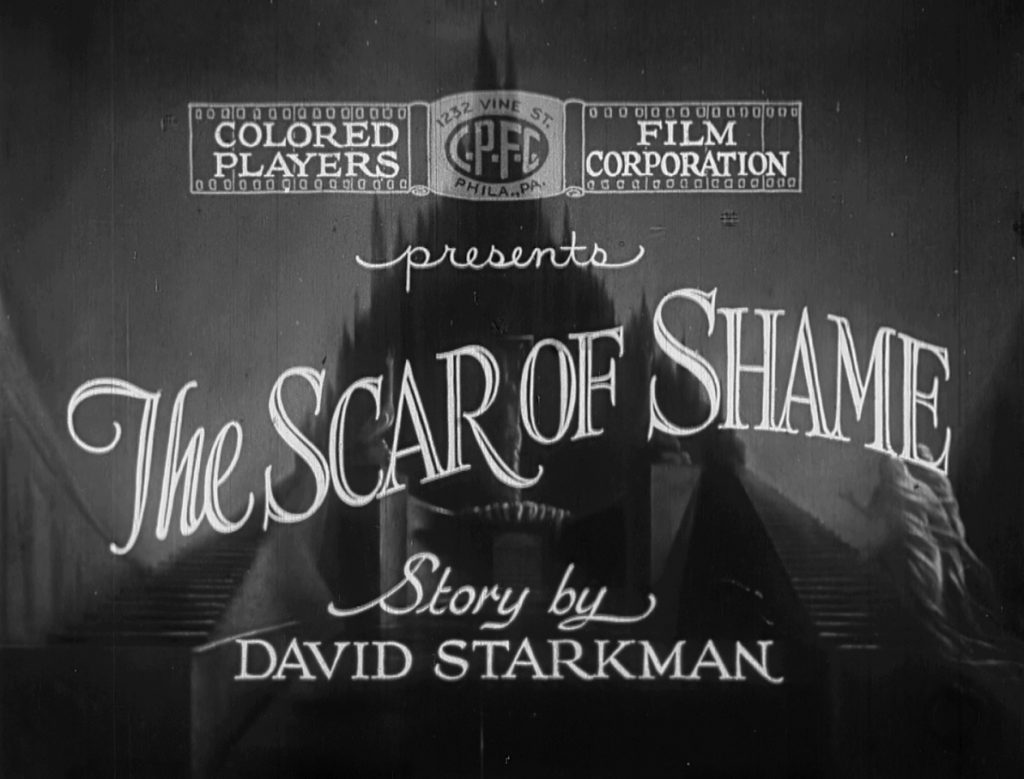
With its theme of female debasement, abuse and exploitation, “The Scar of Shame” could have been born of the #MeToo movement. Attacked and browbeaten by her stepfather, a young woman finds herself led down a path to perdition. Despite its topicality, however, the work comes from a much earlier era: It’s a silent film, released in 1927, and was considered lost until an original nitrate print was discovered in an abandoned Detroit movie theater decades later.
“The fact in 2018 that we can look at a film like this and see that many of the social and cultural vagaries still exist … the struggle is virtually the same,” said Chicago-based composer Renèe Baker, who has written a new score for “The Scar of Shame,” which starred an all-black cast and was produced by the independent Colored Players Corp. of Philadelphia. As part of National Black History Month, the Chicago Symphony Orchestra’s African American Network will screen “The Scar of Shame,” with Baker’s score, on Feb. 24 in Buntrock Hall.

Chicago-based composer Renée Baker has written a new score for the silent film “The Scar of Shame” (1927).
“The Scar of Shame” is an example of a so-called race film: movies made by black filmmakers with mostly black casts, intended for black audiences, often relegated to segregated theaters. From the dawn of cinema to the 1940s, more than 500 race films were released, with approximately 100 still surviving. Some titles, such as “Within Our Gates” (1920) and “Body and Soul” (1924), directed by pioneering black filmmaker Oscar Micheaux, are well-known; others such as “The Scar of Shame,” which respected film scholar Donald Bogle has called “quite possibly the best independent black film of the silent era,” are less so.
Which is where Baker, the founding music director and conductor of the Chicago Modern Orchestra Project, comes in. She has written more than 2,000 works for orchestra, opera, ballet and chamber ensembles, as well as over 100 film scores, which have been performed at venues worldwide and locally (including the Music Box, the Museum of Contemporary of Art and Roger Ebert’s Film Festival). Last season, the CSO’s African American Network presented Micheaux’s “Body and Soul” with Baker’s score.
For the CSO’s “Scar of Shame” screening, Baker has delivered something extra. She’s recorded a new version of her score specifically for this event. “The Scar of Shame” project originated at Indiana University-Bloomington, where Baker had done some research at its Black Film Center/Archive. The archive and IU Cinema then commissioned Baker to compose a score for “The Scar of Shame”; it had its world premiere Nov. 4, with Baker conducting an orchestra of students from IU’s Jacobs School of Music.
“What interested me about ‘The Scar of Shame’ is this was the first race film I was aware of that was done by a white director and writer,” Baker said. ”It sits in the annals of race films, it’s no better, nor worse … even though it was targeted for a black audience, to give an uplifting message. The other interesting part of ‘The Scar of Shame’ is that it shows the pull of the street, not just for African Americans but for any race. One can’t access the good side of life if their environment pulls them down.”
Though the Nov. 4 performance at IU was recorded, Baker didn’t have time to master the audio files for the CSO’s screening (which will be a Blu-ray projection). So she decided to compose and record a new version of the commissioned score. “I love it because I love the movie. It’s special because it’s getting its Chicago premiere, thanks to the CSO’s African American Network.”
During her research at IU, Baker was drawn to the works of Phil Moore (1917-1987), a jazz pianist, orchestral arranger, bandleader and the first black musician to be hired as a staffer for a major studio (MGM, in 1941). His Suite for Strings (1939) inspired motifs in her “Scar of Shame” score. Baker describes this work as “avant-garde, creative music a la the AACM [the Chicago-based Association for the Advancement of Creative Musicians, of which she’s a member], with definite classical influences in a lot of the string work, because I’m a string player [she played viola in the Chicago Sinfonietta]. There are also electronic influences — tasteful electronic,” she added with a laugh. “What I specialize in is accessing the sponge that my brain is. I’ve lived with all of these genres. I cut my teeth on classical music and am still every active in this field. In younger years, I shied away from jazz, bop, because I was a purist. No more. You’ll also find gospel and all kinds of roots music snippets.”

The title card of the silent film “The Scar of Shame” (1927), released by the Colored Players Film Corp. of Philadelphia.
A fan of silent films, Baker believes the genre “is tantamount to what old-time radio used to be. It engages all of your senses. You’ve got to use your imagination, put yourself in their shoes and then just go for it.” Though some moviegoers find it difficult to relate to silent films, Baker contends that silents, with appropriate scores, can be as contemporary as any Hollywood blockbuster. With her scores, she aims to create “a sonic landscape that brings the movie forward to now,” she said. With an imaginative presentation, “people can forget they’re watching a silent film.”
Of all her film scores, she has a soft spot for “The Scar of Shame.” Since its rediscovery in 1969, many scholars and cinephiles have embraced the movie, which is included in the book The 50 Most Influential Black Films: A Celebration of African-American Talent, Creativity and Determination (2001, Citadel Press). It’s also part of an extensive five-disc set “Pioneers in African-American Cinema,” released in 2016 by Kino Lorber, which remastered titles from the Library of Congress and other film archives.
Baker points out that “Body and Soul,” perhaps her best-known score, is from the same cinematic milieu as “The Scar of Shame.” “In ‘Scar of Shame,’ we’re looking at the same issues but they’re seen through eyes of a white director [Frank Peregini] and writer [David Starkman],” she said. “He directed in a sensitive way. In showing the ways of the black community, they didn’t just drop the issues in your lap. The intertitles give a lot of context. The mere fact that the story was even told is a small miracle. It’s quite useful to realize that almost 100 years ago that such a story could transcend stereotypes.
“‘Body and Soul’ is a good movie but ‘The Scar of Shame’ is a brave movie, because it’s so relevant to what’s going on nowadays politically and culturally,” Baker said. “It’s American history. So kudos to the CSO for embracing this film and presenting it.”
Note: There will be a post-screening Q&A session with Renèe Baker, CSOA President Jeff Alexander and CSO musicians.
TOP: Louise (Lucia Lynn Moses) strays from her life of respectability in the silent film “The Scar of Shame,” which the CSO’s African American Network will screen with a new score by Chicago-based composer Renèe Baker. | Photo: Kino Lorber